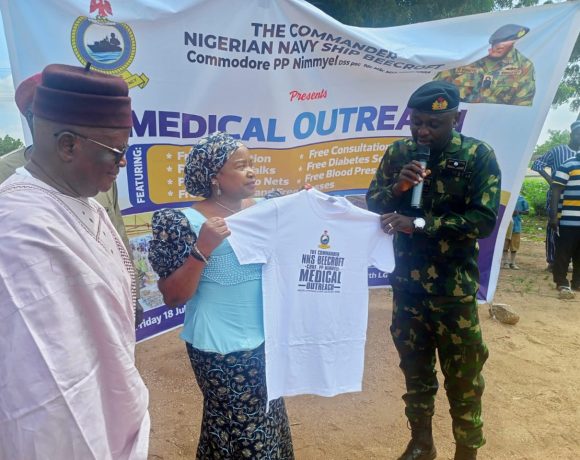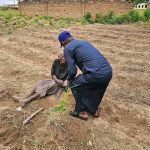GMOs Are Marketing Strategies — Nigerian University Don, Amua

Nigeria
Opinion – Dieko Afolayan
…… Nigeria’s food insecurity to economic deprivation and poor post-harvest technology, rather than just seed genetics.
Vice Chancellor of the Benue State University of Agriculture, Science and Technology, Professor Qrisstuberg Amua, appeared on Channels Television’s Morning Brief on Tuesday, July 29th, 2025
*Vice Chancellor of the Benue State University of Agriculture, Science and Technology, Qrisstuberg Amua, has strongly criticised the claim that Nigeria cannot live without Genetically Modified Organisms (GMOs), describing the statement as a marketing strategy.*
Speaking on Channels Television’s ‘The Morning Brief,’ Amua was reacting to remarks made by the director-general of the National Biosafety Management Agency (NBMA), Dr Agnes Asagbra, who asserted that Nigeria’s survival depended on the adoption of GMOs.
“It got me infuriated and ashamed. Shameful!” he said. “It is not a statement of fact that we cannot live without GMO seeds.”
As an indigene of Benue State, Amua pointed out that much of the region’s fruit currently produced wastes away due to a lack of preservation infrastructure, not because of the absence of GMOs.
He linked Nigeria’s food insecurity to economic deprivation and poor post-harvest technology, rather than seed genetics.
“Nigeria’s issue is not GMO. It is the lack of economic opportunity, absence of processing capacity, and no preservative technology,” he said.
He described GMO use as a commercial and geopolitical strategy.
“GMOs are a marketing strategy to erode the national sovereignty of countries supposedly independent,” he stated.
Amua expressed concerns about the rise of GMO promotion at the institutional level, stating: “I am not insinuating, but I am expressing worry.”
Responding to Dr Asagbra’s comments on the PBR cowpea, Amua raised issues about the chemical compounds used to control pests and how they impact crops. He referenced the Roundup herbicide, which he said is now often used as a chemical to dry crops before harvest.
“That has or definitely will lead to health implications because of the chemicals in the crops,” he warned.
On the issue of GMO regulation, Amua expressed scepticism, saying: “How can that ever be?” he asked, referring to the ability of the regulatory system to monitor every food item in circulation.”
He used an example of street food vendors as an illustration.
“It is impractical in the Nigerian context,” he said, referencing sellers of local staples such as akara, pap, and other processed foods.
Amua also stressed the human impact of the push for GMO adoption.
“Our agriculture employs the highest number of people,” he said, warning that small-scale farmers are being pushed out of business and vulnerable populations are being exposed to unregulated GMO products.
“People displaced by bandits or economic hardship are ingesting anything, even GMO seeds, just to survive.”
Article sent by Correspondent, Dooyum Naadzenga









